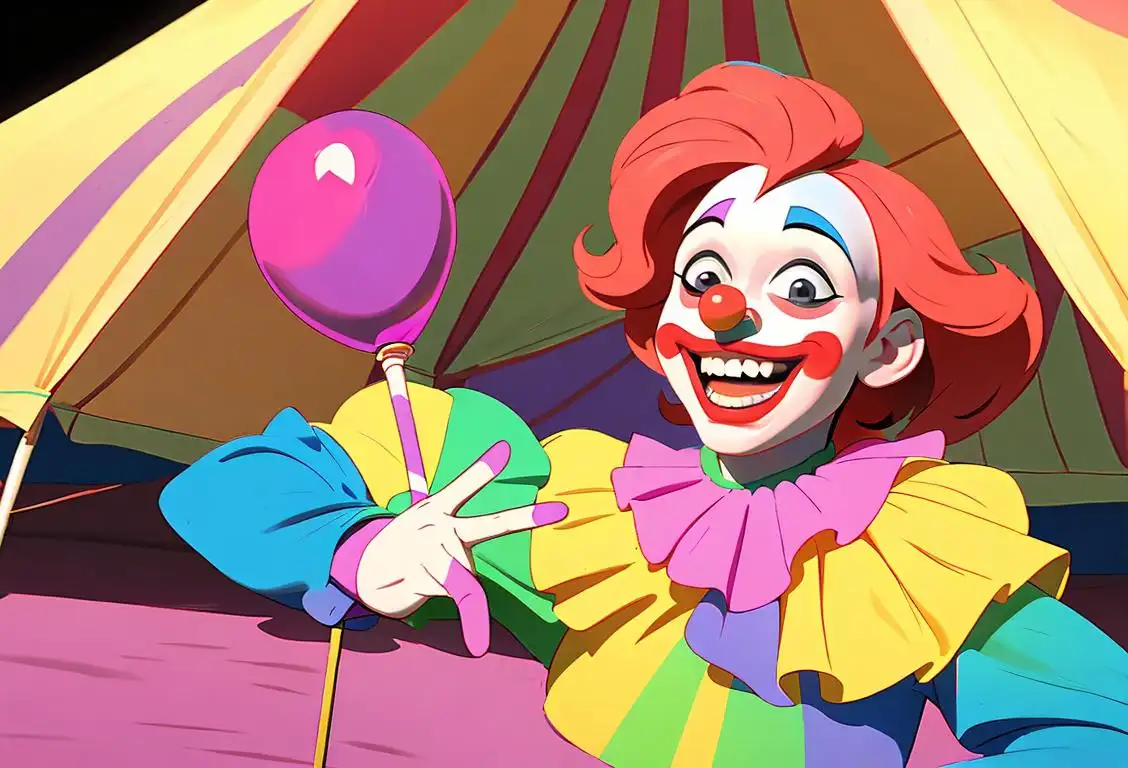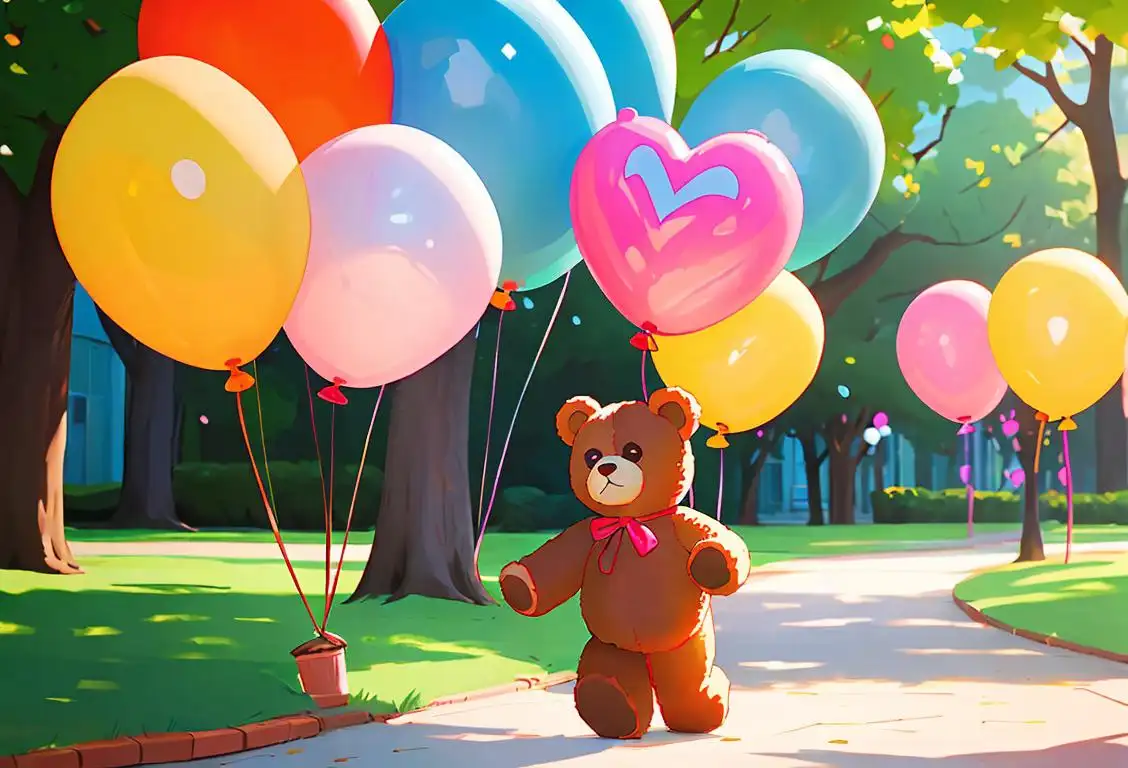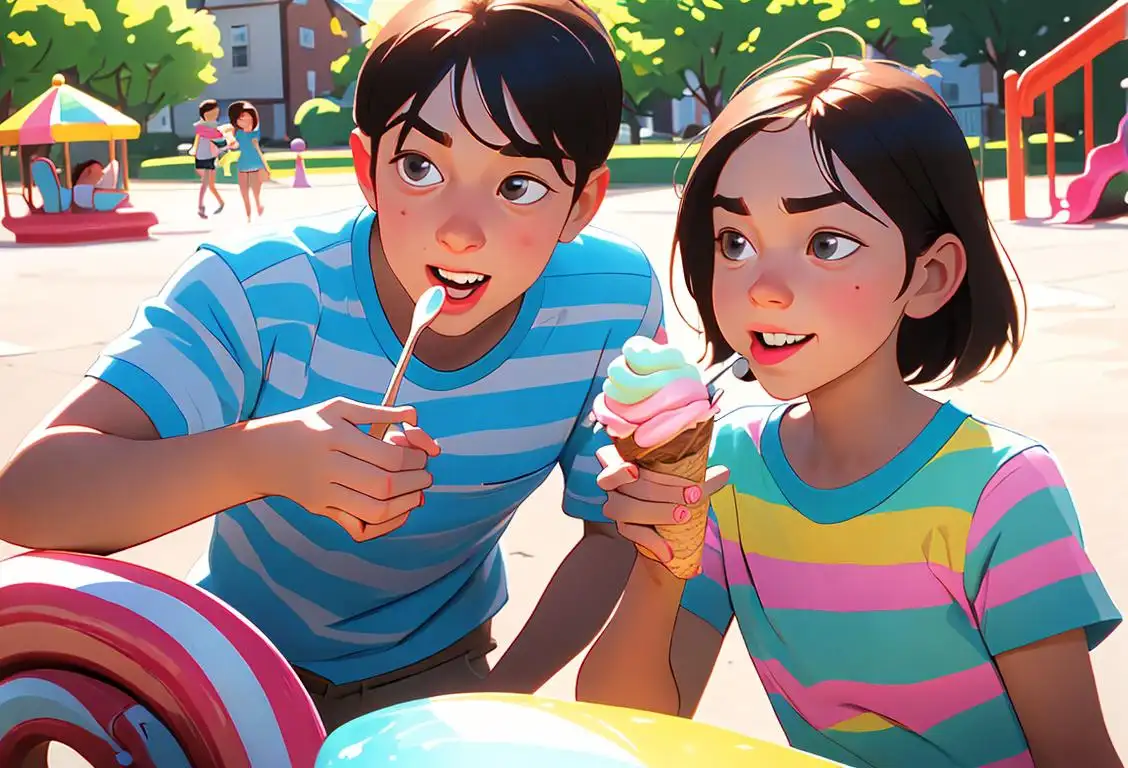National Clown Day

Who doesn't love a good laugh? Enter National Clown Day, a day where we pay tribute to those tripping, juggling, balloon-animal-making jesters of joy. After all, everyone could use a little more whimsy in their lives!
When is Clown Day?
It's national clown day on the 4th October.
A Day for Laughter
Across the world, clowns have a long history of making us smile, laugh and maybe occasionally squirm in our seats. But beyond the big shoes, squirting flowers, and red noses, the art of clowning is a respected tradition filled with skill and craft. National Clown day was created to recognize the hard work and talent of these comically exaggerated individuals.
A Brief History of National Clown Day
Our journey begins on the world wide web. The most mentions online were on 04 Oct 2019, with 5087 mentions in one day! However, the tradition of celebrating clowns goes back even further.
Clowning was recognized as a professional art form during the Middle ages in theatre. From there it has taken various forms in circuses, theaters, TV shows, and even virtual platforms spiking our interest with their perfect blend of comedy and creativity.
How to Honour National Clown Day
Now comes the fun part. You can celebrate National Clown Day by watching clowning performances online or live, if possible. The most courageous could attempt their version of clown makeup or even take a clowning workshop. Just remember, it’s all about bringing laughter and joy to yourself and others.
History behind the term 'Clown'
2500 BCE
The First Jesters
In ancient Egypt, during the time of the pharaohs, entertainers called 'clowns' were known to amuse the royal court with their comedic performances. These early jesters would wear eccentric costumes and use physical comedy to elicit laughter from the audience. They often played a crucial role in festivals and ceremonies, providing a light-hearted distraction from the seriousness of royal affairs.
500 BCE
Greek Comedic Theater
During the Golden Age of Greece, comedic theater began to flourish, and 'clowns' played an essential part in these performances. Known as 'silly buffoons,' they used slapstick humor, parody, and satire to entertain the audiences. These Greek clowns were characterized by their distinctive masks and over-the-top costumes, which exaggerated their facial expressions and gestures.
16th Century
Harlequin Emerges
In Italy, a new character named 'Harlequin' was introduced in Commedia dell'arte, a form of improvisational theater. Harlequin, known as Arlecchino in Italian, became immensely popular for his acrobatic skills, cleverness, and mischievous behavior. He wore a diamond-patterned costume and carried a wooden sword or slapstick. Harlequin's sly and cunning personality set the stage for the development of the modern clown archetype.
18th Century
Joseph Grimaldi Reinvents Clowning
Joseph Grimaldi, an English actor and comedian, is considered the 'father of modern clowning.' With his extraordinary physicality, exaggerated face paint, and colorful costumes, Grimaldi revolutionized the role of the clown in British pantomime. He introduced diverse comedic techniques and incorporated music and dance into his performances. Grimaldi's legacy remains influential in the field of clowning to this day.
20th Century
Circus Clowns Take the Spotlight
The circus became the ultimate stage for clowns in the 20th century. With the rise of popular circuses like Ringling Bros. and Barnum & Bailey, clowns became an integral part of the spectacle, captivating both children and adults with their slapstick humor, stunts, and pranks. Famous circus clowns such as Emmett Kelly and Lou Jacobs gained worldwide recognition, solidifying the clown's status as an iconic figure in popular culture.
Present Day
Clowning Goes Beyond the Big Top
While clowns are still associated with circuses, their influence has expanded far beyond the big top. Today, clowns are found in various forms of entertainment, including movies, television shows, and stage performances. They continue to bring joy and laughter to audiences around the world, although the portrayal of clowns has evolved over time to include both traditional and contemporary interpretations.
Did you know?
Did you know that being a clown requires professional training? Many clowns go to clown school to learn the intricacies of comedy, physical theatre, mimicry and more!Tagged
awareness fun loved ones rememberanceFirst identified
4th August 2015Most mentioned on
4th October 2019Total mentions
5087Other days
Cheese Lovers Day
Teddy Bear Day
Sibs Day
Biscuit Day
Cancer Survivors Day
Agriculture Day
Pumpkin Day
Suicide Prevention Day
Memorial Day
First Responders Day









